Paradise of the Assassins: An interview with actress Skye Hallam
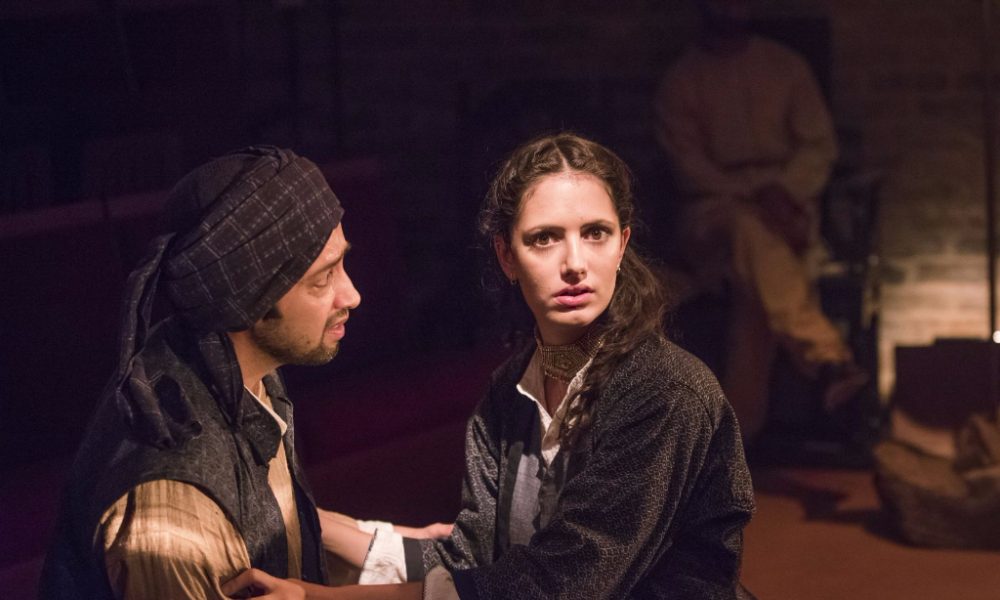
The Upcoming caught up with Skye Hallam before her theatre breakthrough in award-winning director Anthony Clark’s Paradise of the Assassins. We talk to the RADA graduate about her future plans, how her career as a model has affected her acting and her views of female roles in the acting industry. Watch out for this bright new talent!
What was your first break?
I suppose this is my first break! This is my first professional job since graduating from RADA in July. It’s very exciting to be working with such experienced actors and to be a part of the first ever production in the new TARA theatre.
What projects do you have planned for the future?
Until we have opened the show, I’m trying not to think about anything else…Yet! I’m just trying to focus on getting this show on the road and then I can multitask and look forward to what’s next.
It’s funny, when you’re in drama school, you don’t imagine life beyond the training itself. You’re so shocked that you got in, you feel like you’ve already made it. Then you have to leave and stare into the abyss of life as a self-employed actor, which can be quite daunting! Let’s just say I was very relieved to have something as exciting as this, in the pipeline when graduating.
Had you read Abdul Halim Sharar’s novel before acting in the play?
Yes, I had. This was quite a difficult task, as it is no longer in print. I enrolled myself as a reader at the British Museum, to be able to read it and sat one summer’s afternoon in their quiet map room to get stuck in. It is a beautiful magical story, which I feel Tony has really captured in our version. I made quite a lot of useful notes, mainly the descriptions of my character, Zamurrud. However, I didn’t want to take it in too deeply as I didn’t want to be muddled when working on the play version.
What was it like working with Anthony Clark?
It has been a very enjoyable experience working with Tony as he has a way of putting everyone at ease and creating a very friendly, low stakes environment. It was a new experience for me to have the writer in the room and also a very collaborative experience working on a new piece, having seen many drafts worked on and altered to become the final piece that is today. I have been very stimulated by this process and would like to work on other new writing pieces in the future.
What would you say has been your most challenging role so far?
I would say, besides this role, my most challenging would be playing the outrageous Miss Reyes, a 50-year-old, “Nuyorican” mother from the Bronx, in Stephen Adley Guirgis’ In Arabia We’d All Be Kings. It was a gift of a role but also my hardest, as it was the most far away from myself I’ve ever gone. I really enjoyed it in the end, and I think you learn a lot from those experiences which you can incorporate when playing characters more like yourself.
How far, from your experience, do you feel modelling and acting differ? Who or what is your inspiration?
Modelling, like acting, requires you to be really open and available at all times. You have to be able to improvise and adapt to each situation you find yourself in, without too much difficulty. In both worlds, you have to be able to work an audience with confidence. However, I think acting is something that comes from deeper within, it requires you to open yourself up and bare the most inner parts of yourself. It is a very personal experience, expressing yourself on stage through different characters. When modelling, you don’t always get as far as being able to speak as the character, even if you are playing one for the camera.
My aspiration was always to become a performer of some sort, however, from the age of fifteen I knew acting was my calling! Modelling came to me at a young age, and I didn’t have a reason at the time to say no. It was a new experience, and I learned a lot about myself from it, and I’m grateful for the positive experiences I had.
What would be your ideal role to play?
Oh gosh, there are so many incredible roles out there! Especially now that women are beginning to play roles that were once only seen as “male” roles. I think I would love to play Iago in Othello or Medea, one day. They are both so psychologically complex and exciting.
Do you see your career heading in the direction of film or theatre? Which do you prefer?
I haven’t done any film work, but I would love to. Performing live in front of a different audience each night, allowing your performance to change and grow, is something that really drew me into loving theatre and performing on stage. However, I have always loved watching films and listening to actors that have inspired me – like Johnny Depp – talk about their experience on a film set and how the process of creating the character with much less or even no rehearsal can be really fulfilling and exhilarating. Although, with theatre, I do love the idea that only the people that came to see the show have seen it. It can’t be bought on DVD or streamed on the Internet. It makes it a very special, one-off experience.
Do you feel, in your experience, there are enough strong roles for female actors?
No, I don’t. I think there are still so many roles being written for “pretty, submissive, sensitive” women who don’t have enough about them. It’s a real shame, but a lot of people are doing great things to help this move forward. Just look at Duncan Macmillan’s People Places and Things or Phoebe Waller-Bridge’s Fleabag! The industry knows that more needs to be done, and it’s happening. Women are being seen on stage and screen without a male lead to lean on.
Have you considered a career outside of acting?
When I was young, I always loved to dance and play the piano and sing. I also took athletics very seriously for a few years, but in the end, I chose subjects at school that were pretty much pointing in one direction: the arts. I did consider doing my favourite subject, philosophy, at University but I couldn’t afford to do both University and drama school.
How far do you attempt to make a statement with your acting? Do you feel theatre and the acting industry can play an important role in engaging people with current affairs?
Completely! I believe that the way we receive news and current affairs today is horribly impersonal. On Twitter, it’s trivialized with hashtags and the like. If you take a play like Paradise of the Assassins, you are putting the audience in the situation, first hand, on the front line. Letting them see the relationships that violence and extremism can ruin. You give the audience a chance to empathize with both sides, in order to understand what is really going on. You can let the audience decide for themselves what they think, instead of being assaulted with propaganda. It’s also creates a great debate about current affairs for them to go home and discuss afterwards. If you feel something for the characters in the play, who in reality are real people in the world, experiencing those things, then you can influence an audience much more than a formal, cold, newsreader.
What would you say are you are most passionate about?
In my work, I am most passionate about catharsis for an audience. Hoping that they have had an experience that has changed them and may stay with them for years to come. That is what excites me about this job. One of my final shows at RADA was the incredible Kindertransport by Diane Samuels. One night there was a woman crying throughout the performance. She later turned to my mother, who happened to be sitting next to her, and she said that it’s one of the only times she’s cried or felt able to connect to her father’s story. He was a Kindertransport child and she felt for the first time she understood what he’s gone through. It was an amazing feeling to walk away that evening knowing that this play, and our interpretation of it, had given this woman so much.
What techniques do you use to get into character?
It’s differs for every role I play. Sometimes I have to read a lot about the time period in order to understand why they are the way they are, whereas other times I’m playing somebody that is from Surrey, is middle class and is 21, just like me! In this play, Zamurrud is doing something very unheard of: running away from home with a young man whom she is not married to. It couldn’t be more shameful if she tried, at that time. With every character I play, I have to make the leap between me and them disappear; the most important step in this process is personalisation. If your character is bereft of their brother, like my character is, I don’t have a brother but I can imagine what it would be like to lose my mother or father, for instance. Taking that imaginary leap helps you to properly understand and feel what she is feeling. Some of the most fun I’ve had when getting to know a character is finding out how they move, how this may be different to me, and what music I can listen to during my warm-up that helps get into their emotional state.
Thank you, Skye, and good luck with your career!
Georgie Cowan-Turner
Paradise of the Assassins is at the Tara Theatre from 15th September until 8th October 2016, for further information or to book visit here.
For more information on Skye Hallam, visit here.

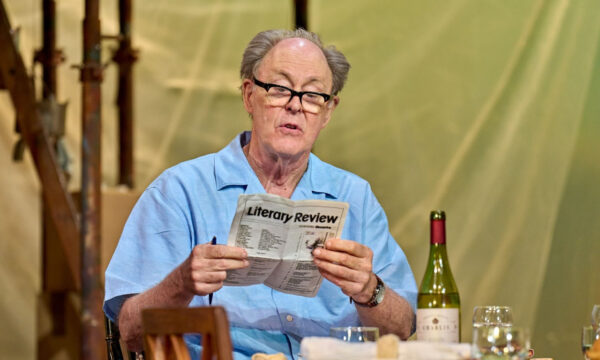
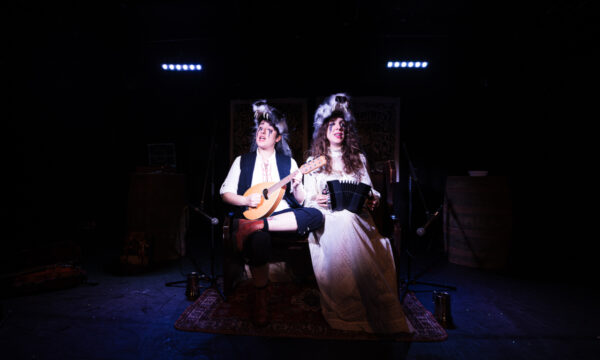
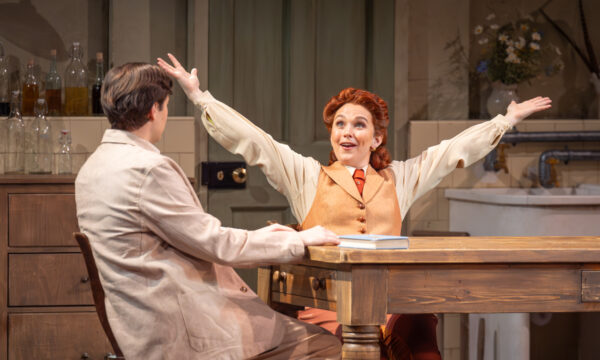
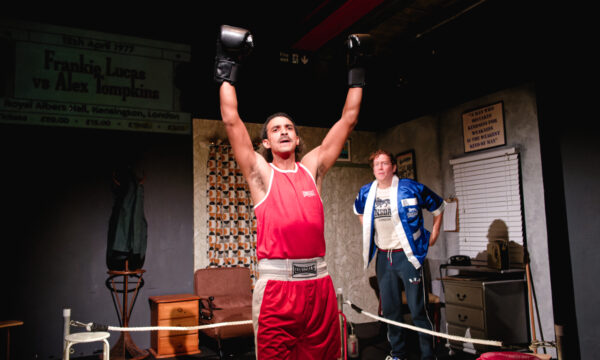
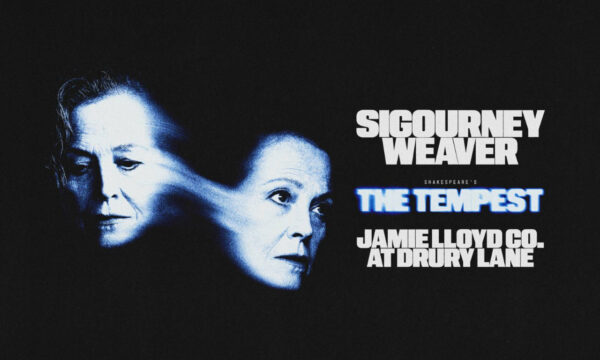
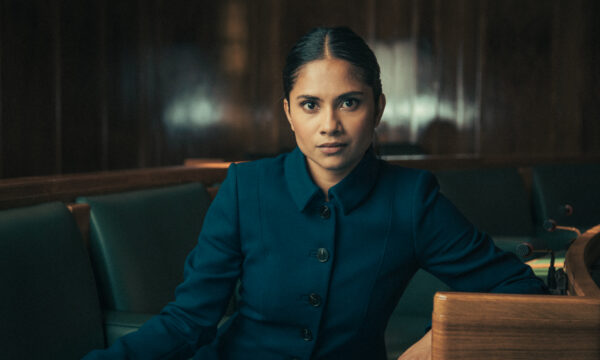
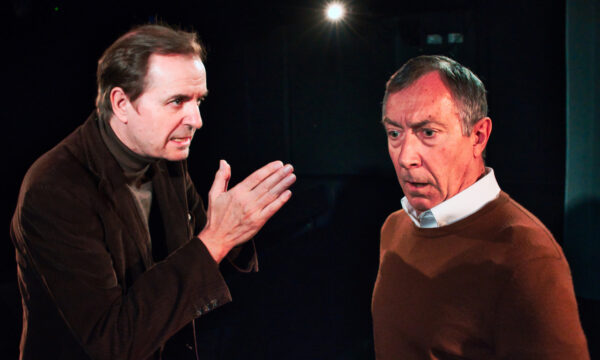
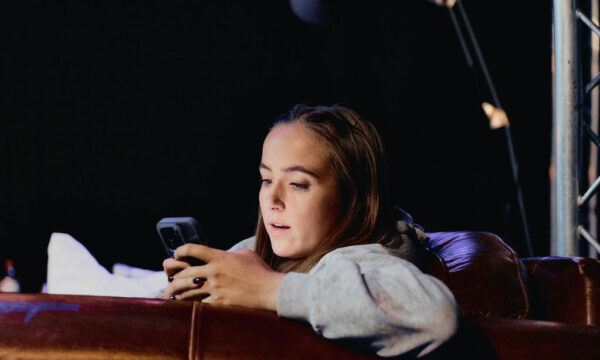
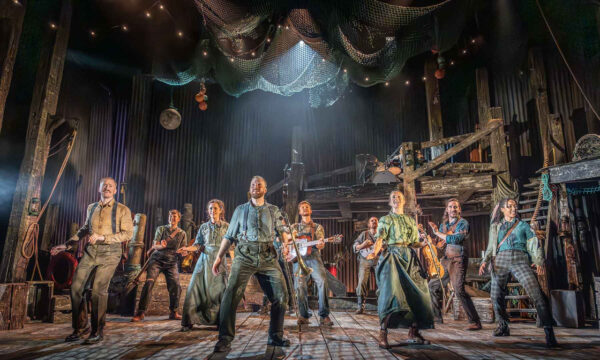









Facebook
Twitter
Instagram
YouTube
RSS